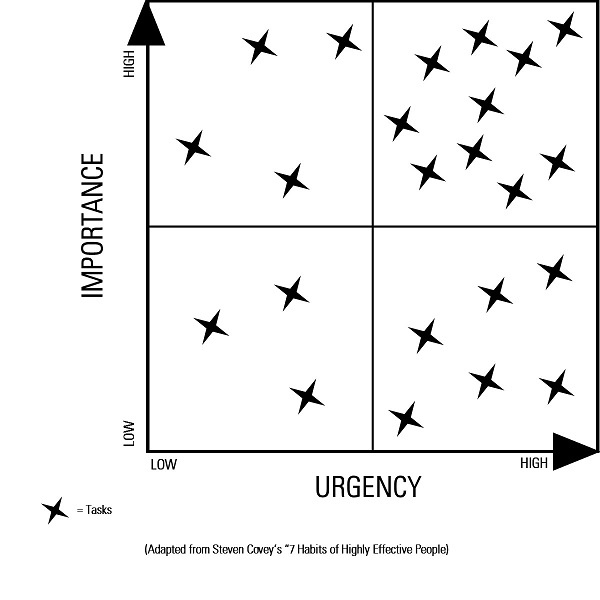In three days we will say goodbye to 2016. Don’t worry, I am not about to take you down a path of complaining about the year that has passed. This topic has already been beaten to death across every social media platform and multiple news sources (real and fake.) Instead I wanted to broach a topic that focuses on moving us forward into the year to come, that is, resolutions.  Did you know that the concept of an annual resolution is over 4000 years old? The ancient Babylonians are said to have gotten the ball rolling by making promises to their gods during a 12 day religious festival that was called Akitu. These promises usually invoked the repayment of debts and the return of any objects borrowed the prior year. Not unlike the 34% of “resolutioners” who make themselves promises about money each New Year now. If you are interested in learning more about the history of resolutions I would encourage you to explore The History Channel’s research on the topic here. Today? I thought it might be more interesting to see what the New England Construction family feels about making resolutions.
Did you know that the concept of an annual resolution is over 4000 years old? The ancient Babylonians are said to have gotten the ball rolling by making promises to their gods during a 12 day religious festival that was called Akitu. These promises usually invoked the repayment of debts and the return of any objects borrowed the prior year. Not unlike the 34% of “resolutioners” who make themselves promises about money each New Year now. If you are interested in learning more about the history of resolutions I would encourage you to explore The History Channel’s research on the topic here. Today? I thought it might be more interesting to see what the New England Construction family feels about making resolutions.
In my very unscientific study, I simply asked if the individuals assessed (under promises of anonymity) believed in making New Year’s resolutions. From there, if they said yes I probed a bit deeper to see what sorts of resolutions they like to make. If they said no, my response was “Why?” I will lay it out there that I was pretty shocked by what I heard as I made my way from person to person. My experience is that our staff members tend to be highly motivated overachievers. I had assumed that most would see a resolution as another challenge to tackle. I was wrong. After I share some of their responses I will explain what I took away from the experience.
From the pro-resolution camp I heard:
“I think setting resolutions is important because it helps me get focused on new goals.”
“My resolutions usually involve finding a better work-life balance. I make the same one each year and while I might fail, I am always hopeful. I think that’s important.”
“I do make resolutions and like most people they involve getting back in shape. I’d think that 90% of the people that make them ultimately fail though, I know I do.” (Close! 92% of “resolutioners” are unsuccessful according to this data.)
“Resolutions are important. We have to set goals. But I haven’t decided on mine yet!”
“I make resolutions that are clear and achievable. I don’t get caught up overshooting my goals.”
The common thread seemed to be that resolutions are good and should be made, but are hard to sustain and often fail. It was fascinating because it seemed that the concept of a resolution was more important than the actual action and success. More folks were against resolutions in general, here are their thoughts:
“Resolutions fail. I find it is better to try and set goals that are not dependent upon a ‘day one’ start.”
“I don’t like to set goals that require me to wait. I have gotten started already.”
“Resolutions, especially fitness and food based ones, seem to always come after the holidays. I don’t wait weeks to get back into my healthy patterns. Do it now.”
“Setting resolutions is an intimidating thing. I prefer to set smaller goals that build into bigger ones over time.”
“Statistically New Year’s Resolutions don’t work out. Why set yourself up for failure? Better to use the same goal setting procedure that has worked for you all year.”
“Goals are for every day, not just New Year’s.”
I think the commonality expressed is summed up well in that last statement. Of the NEC staff I surveyed, almost 75% were against resolutions, but as you can see it was not because they were intimidated by the idea of setting goals. I found three solid threads that resonated in both the pro and con responses that I think are worth sharing:
- Setting goals is important. No question.
- Setting goals based on an annual tradition or implied “must” are precursors to failure. You have to set goals because the outcomes are important to you, not because “It’s that time again.”
- Don’t wait to take action. Start now.

The pattern I see here is that this fantastic group of hard workers I call colleagues are smart enough to find the goal setting devices that work for them, and do so independently. I mentioned earlier that I was surprised by these results and it was not because I assumed our team did not set goals. Instead I was impressed by their ability to see past the quaint nature of a New Year’s resolution and dive deeper into the things that motivate them to achieve success.
As you ponder your own choice to make a resolution or not for 2017, I will leave you with this thought from Melody Beattie:
“The new year stands before us, like a chapter in a book, waiting to be written. We can help write that story by setting goals.”



